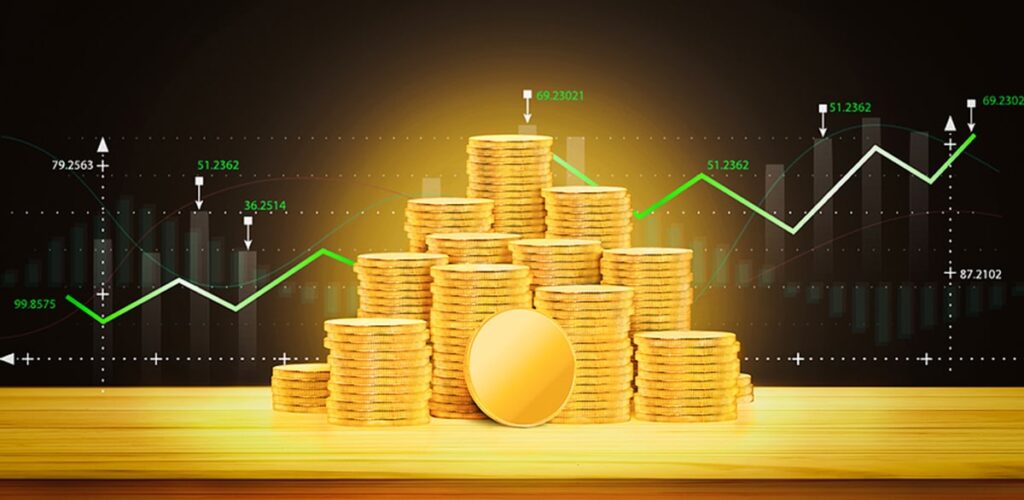Tariffs have emerged as a cornerstone of President-elect Trump’s economic agenda. These moves symbolize the administration’s commitment to reinvigorating the US economy while holding other countries accountable for their end of trade bargains. However, the scale and scope of Trump’s tariff plan have caused concern among investors from both sides of the political spectrum, who are worried about their economic consequences.
In this week’s The Gold Spot, Scottsdale Bullion & Coin Precious Metals Advisors Steve Rand and Joe Elkjer explain these potential tariffs’ possible advantages and downsides, how the US dollar may struggle either way, and why gold is still bullish.
Trump’s Tariff Plan: Ingenious or Disastrous?
Thus far, the incoming administration has floated the idea of hefty tariffs on adversaries such as China and Iran, as well as major trading partners like Mexico and Canada. President Trump has even proposed 100% tariffs on BRICS nations that threaten to de-dollarize their economies. These threats have kicked up a duststorm of fierce criticism, fiery support, and widespread confusion.
Backers of the tariff strategy point to their ability to bring partners to the table and negotiate beneficial deals. The replacement of NAFTA with USMCA is often hailed as a success story of Trump’s tariff threats during his first term. On the other hand, critics highlight the economic impact Americans could potentially suffer, including higher inflation, rising interest rates, and higher costs.
In reality, tariffs are likely to spawn a combination of short-term pain and long-term gains:
Short-Term Pain
Higher Prices: Higher consumer prices are one of the immediate knock-on effects of higher tariffs, as American businesses have to increase prices to cover the cost of imported raw materials and goods. These price hikes ultimately fall on the consumer. This could further reignite inflation and force the Federal Reserve to revamp interest rates.
Economic Disruption: The mere mention of Trump’s tariff proposals is enough to send shockwaves through the economy. Small businesses are already scrambling to prepare for the moves by front-loading inventory and curbing expenses elsewhere. This widespread cost-cutting could lead to significant job losses and a weaker employment market.
Retaliatory Tariffs: Many people look to Trump’s first term when tariffs were used more as a bargaining chip than a concrete policy. However, the threat of major trading partners implementing retaliatory tariffs is real. Claudia Sheinbaum, President of Mexico, has already announced her intention to go toe-to-toe with Trump on tariff threats.
There’s going to be a lot more pain before we get to where we want to be.–
Long-Term Benefits
Domestic Industry Protection: Over the past 20 years, the number of US-based manufacturing firms dropped by 21%. By taxing certain imported products, America’s manufacturing industry is protected and given a chance to thrive.
Fair Trade Practices: As the world’s largest importer, the United States has tremendous leverage when negotiating fair deals. Tariffs are a key strategy in establishing and maintaining advantageous trade agreements.
Economic Growth: Protecting key industries and securing better trade deals would remove some constraints holding back the U.S. economy’s powerhouse, enabling it to flourish. This revival in American industry could significantly boost the nation’s economic strength.
Long term, I expect tariffs to be very, very positive for the country, but it’s not going to be without some pain in the meantime.–
Dollar Faces Massive Pressure
Even the most bullish outlook on Trump’s tariff proposals does little to improve the dollar’s grim diagnosis. The greenback faces an unprecedented series of obstacles, including a surging national debt of over $36 trillion, exponential interest costs of over $1 trillion annually, stubborn inflation, quantitative easing (QE), de-dollarization efforts, and incoming tariff hikes. All these pressures reduce global confidence in the dollar, resulting in a flood of USD back to American shores.
Gold Still Shines Bright

As the dollar’s influence and appeal wane, gold shines brighter. All the bearish economic and geopolitical factors for the dollar are bullish for gold. The yellow metal has seen record-setting central bank demand in 2022, 2023, and the first half of 2024. With plenty of risks we can’t ignore in 2025, experts expect the gold rally to continue. By the same token, the unprecedented rally fueled by sustained demand is expected to send gold higher throughout 2025, with many experts raising their price predictions.
The problems for the dollar are not a quick fix by tariffs. It’s still under a lot of pressure.–
Don’t Wait to Buy Gold, Buy Gold and Wait
From deep-seated dollar weakness to short-term economic turbulence, all signs suggest gold’s temporary pullback is nothing but a blip before the next rally. Big banks such as Goldman Sachs and Citi encourage investors to buy the dip due to the yellow metal’s bullish outlook. At the same time, gold and other safe-haven assets are shaping up to provide much-needed protection against possible inflationary pressures in 2025.
If you’re interested in learning more about how precious metals can help you protect your wealth, claim your FREE COPY of our Gold & Silver Investment Guide. It covers everything you need to know about diversifying to start diversifying with these safe-haven assets.
Question or Comments?
If you have any questions about today’s topics or want to see us discuss something specific in a future The Gold Spot episode, please add them here.
Comment



Questions or Comments?
"*" indicates required fields